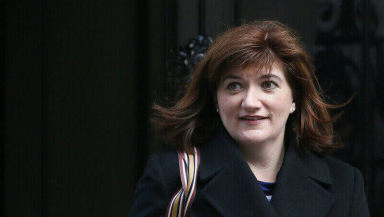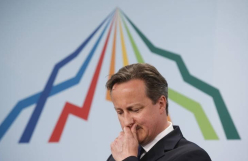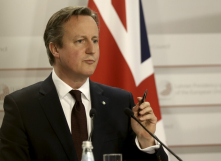
Earlier this week Nicky Morgan, the education secretary, was speaking on BBC Radio 4's Today programme when she said something quite astonishing: apparently, if a pupil makes a remark that is perceived to be intolerant of homosexuality, it could be a sign of extremism. Teachers would be expected to inform senior staff, the police and social services. Her comments came as a new guide was issued to schools across England and Wales designed to help them identify pupils in danger of being radicalised. Rather than providing clarity, Ms Morgan has muddied the waters considerably.
Unquestionably, the crisis in Syria, the rise of ISIS and the ongoing power struggles in the Middle East region, Africa and around the world mean we can't turn a blind eye to the dangers of radicalisation. Stories of young people going off to fight for ISIS require a robust response. And it is not wrong to make sure schools are on the lookout to step in where necessary. But why force the connection between homophobia and extremism? Especially in relation to school pupils, this seems absurd.
Surely a pupil talking about terrorist activities, or expressing admiration for jihadist doctrine is a far more obvious a sign of radicalisation? Even then, let's remember we are talking about children. Mature adults often say foolish things and some will make homophobic comments, perhaps as a joke, or deliberately. As unacceptable as this is, it should not be looked on as a sign of inevitable extremism. Dialogue, discussion and appropriate discipline within the context of the school's ethos would be a more measured response.
Ms Morgan's choice remarks raise wider concerns. The former head of MI5, Jonathan Evans, has said the new guidelines for public bodies, designed to help them identify radicals, could well mean harmless evangelical street preachers are arrested simply for communicating their views. There are high profile examples of this already happening. So if our views don't conform to the progressive agenda, are we now to be written off as radicals?

The question of homophobia is especially relevant to Christians – not because we are all homophobic but rather because that is often how we are portrayed. Imagine a young child, brought up in a Christian home, who may have picked up that their parents, because of their faith and their desire to uphold biblical teaching, do not think homosexual practice is right in the eyes of God. That child, by no means a radical, may well say something at school that is overheard by a teacher. It strikes me that under Ms Morgan's example, that teacher should alert just about everyone, including the police, to the fact this young person may be about to go off and become a jihadist. It sounds silly, but that is what could happen.
As a teacher, one of the most important things I had to deal with was bullying – all forms of bullying and, yes, that included homophobic bullying. Homophobic behaviour is never an expression of Christian love. Neither is holding a traditional view on sexual ethics revealing a lack of love or being homophobic. Nicky Morgan is correct in saying that ISIS is very intolerant of homosexuality. Christians condemn the barbarity of ISIS along with the vast majority of people. Our opposition to homosexual practice does not negate our belief in the inherent dignity of all human beings. Yet comments like the ones made by the education secretary reinforce the idea that traditional views on sexual ethics and families are now unofficially classed as homophobic. In our communication of that belief we can often err and sound too critical and perhaps fail to realise that while we don't see someone's sexuality as their identity, many within the gay community do. We have a responsibility to guard our tongues and be wise in how we speak. But that doesn't equate to changing our views or watering down the truth.
There are no easy solutions in this complex area, but as teachers responses have illustrated, I fear that these measures may indeed stifle the important discussions in the classroom that help understanding and respect of another's position, an important tool in the fight against radicalisation.















